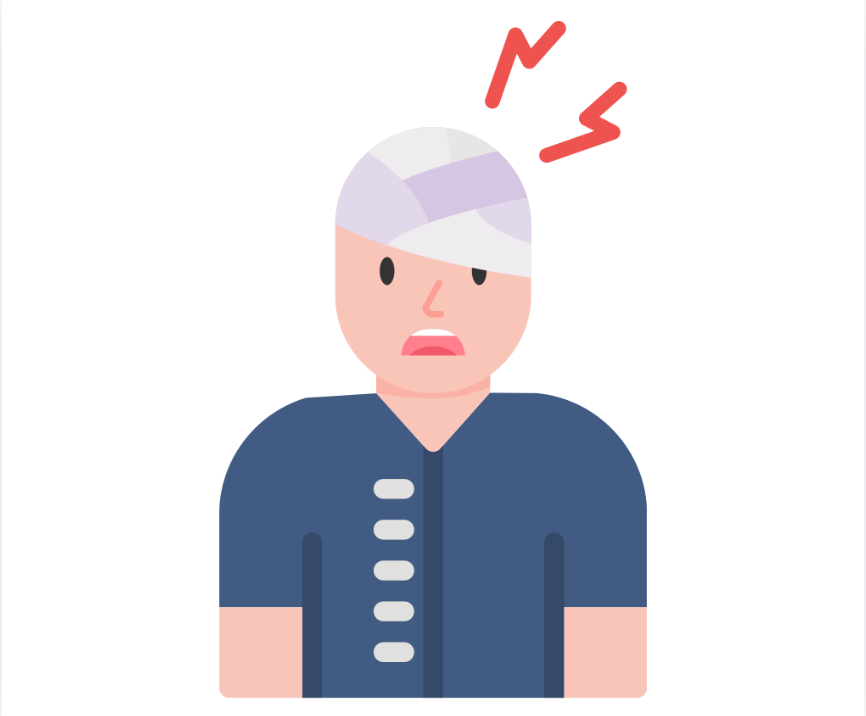
Quick Response to Severe Head Injury
What is it:
Head injury is a critical medical emergency that requires immediate attention. Such injuries can lead to significant complications, ranging from mild concussions to severe traumatic brain injury including skull injury and heavy bleeding,

all of which can have life-threatening consequences. Rapid response and appropriate treatment are essential to minimize damage and improve the chances of survival.
Signs and Symptoms to watch for:
Any head injury could be serious even though externally it may not be visible.
- Common symptoms of a minor head injury could be headache, lightheadedness, a spinning sensation, mild confusion, nausea, and temporary ringing in the ears.
- Severe head injuries include loss of consciousness, seizures, balance or coordination problems, inability to focus the eyes, loss of muscle control, memory loss, and leaking of clear fluid from the ear or the nose. The most severe is an injury to the skull and extensive bleeding.
What to do if someone sustains a Head injury:
It is crucial to act quickly and follow proper first aid procedures. Before you begin treating the patient, ensure the scene is safe for both you and the injured person.
- If the person is conscious, keep them still and lying down with their head and shoulders slightly elevated. Stabilize their head and neck by placing your hands on both sides.
- Stop any bleeding by firmly pressing a clean cloth on the wound, unless you suspect a skull fracture. In that case, do not apply direct pressure. Ice packs can be used to reduce swelling, but place them over a towel rather than directly on the skin.
- Call 102 immediately to alert emergency services or drive the person to the nearest hospital where MRI and CT scan facilities are available.
Do Not:
- Wash wounds that are deep or bleeding a lot
- Remove any object sticking out of a wound.
- Move or shake the person unless necessary.
- If you suspect a skull fracture, do not apply direct pressure to the bleeding site.
- Remove a helmet if you suspect a serious head injury as it can worsen the condition.
A serious head injury that involves bleeding or brain damage must be treated in a hospital immediately. Seek medical advice and watch for symptoms of a head injury, which can show up later.
Post-Incident Care:
In many cases, even if you initially recover from a head impact and seem normal, symptoms can develop later. CT or MRI scans can help detect any internal damage to the brain, ensuring that any potential issues are identified and addressed promptly.
 Back
Back